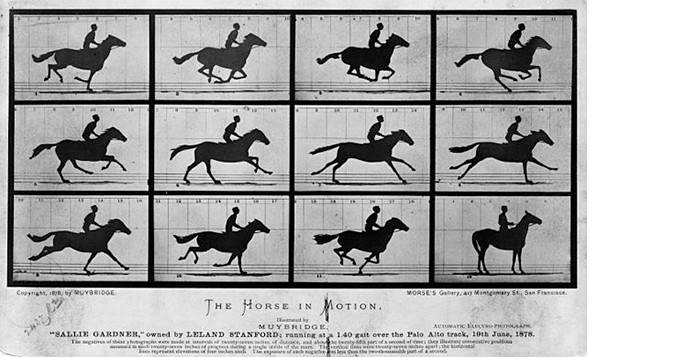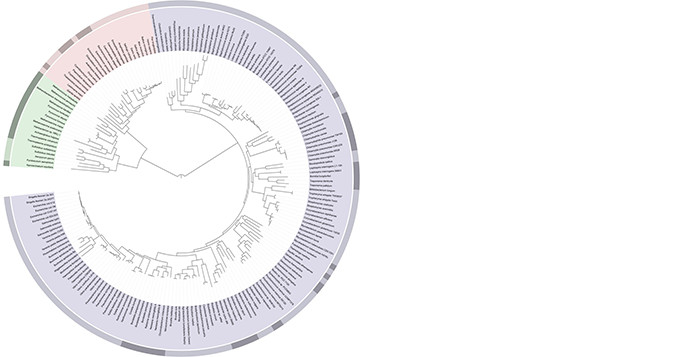
Altmetric’s High Five – Living Computers, Head Trauma, and Coffee for the Win (July 2017)
Welcome to the Altmetric High Five in association with the Science Council. On a monthly basis, the High Five posts examine a selection of the most popular research outputs Altmetric has seen attention for that month.
The original post can be found on the Altmetric blog. Links to all papers included can be found in the Reference section at the end.
1. Living (microbial) computers

Eadweard Muybridge – Provided directly by Library of Congress Prints and Photographs Division
Could our future computers be living, literally made out of living cells? Our first High Five paper is “CRISPR–Cas encoding of a digital movie into the genomes of a population of living bacteria,” published in Nature in July.
Over 100 news outlets covered the study, along with nearly 5,000 Twitter users.
2. Head trauma

A leather football helmet from the 1930s. Via Wikimedia
Our second High Five paper is “Clinicopathological Evaluation of Chronic Traumatic Encephalopathy in Players of American Football,” published in JAMA in July. The study authors found, using a convenience sample of deceased football players who donated their brains for research, that “a high proportion had neuropathological evidence of CTE [chronic traumatic encephalopathy], suggesting that CTE may be related to prior participation in football.”
Nearly 200 news outlets covered the study, which also received significant attention on social media.
3. Physical (in)activity around the globe
Our third High Five paper is “Large-scale physical activity data reveal worldwide activity inequality,” published in Nature in July. Using smartphone accelerometers to collect data, the study authors found inequality in activity level within countries, and that this inequality “is a better predictor of obesity prevalence in the population than average activity volume.”
Just a little over 100 news outlets covered the study.
4. The vanishing animals

A highly resolved Tree Of Life, based on completely sequenced genomes, generated using iTOL: Interactive Tree Of Life, an online phylogenetic tree viewer and Tree Of Life resource. Author: Ivica Letunic
Our next High Five paper is “Biological annihilation via the ongoing sixth mass extinction signaled by vertebrate population losses and declines,” published in PNAS in July. The study authors underline the severity of the current extinction rates of animals on Earth.
Nearly 150 news outlets covered the study, which was also highly tweeted.
5. Our love affair with coffee continues

Credit: Julius Schorzman, via Wikimedia
Our final High Five paper, “Coffee Drinking and Mortality in 10 European Countries: A Multinational Cohort Study,” brings more good news for coffee drinkers. The study authors found that coffee drinking was associated with reduced risk of death from various causes, across countries. The researchers evaluated the association of coffee consumption with serum biomarkers of liver function, inflammation, and metabolic health, and computed hazard ratios, in 10 European countries.
Nearly 160 news outlets covered the study. But some science outlets denounced hype surrounding the findings. “Coffee drinkers live longer” turns out to be an overly simplistic interpretation of the study’s results.
References:
1. CRISPR–Cas encoding of a digital movie into the genomes of a population of living bacteria
2. Clinicopathological Evaluation of Chronic Traumatic Encephalopathy in Players of American Football
3. Large-scale physical activity data reveal worldwide activity inequality
5. Coffee Drinking and Mortality in 10 European Countries: A Multinational Cohort Study
